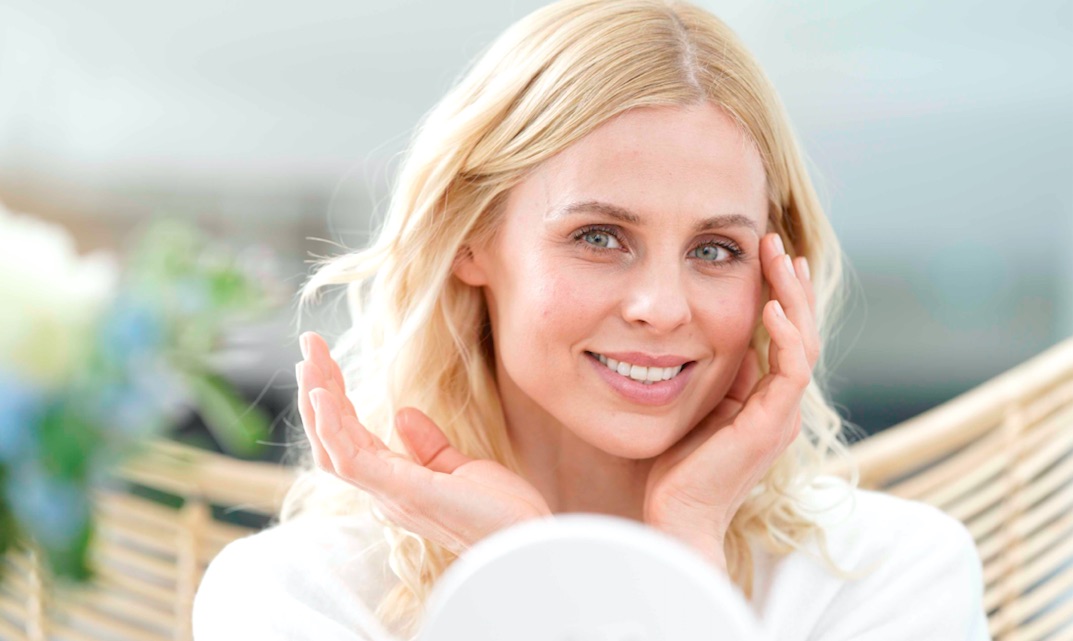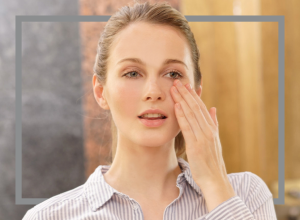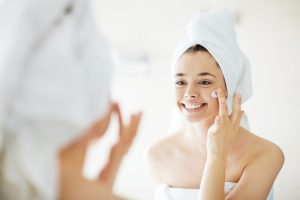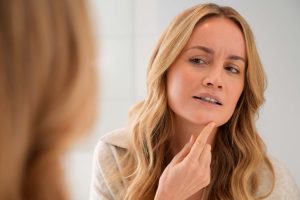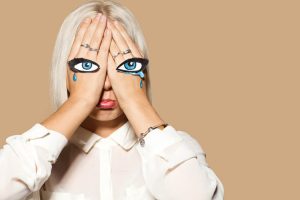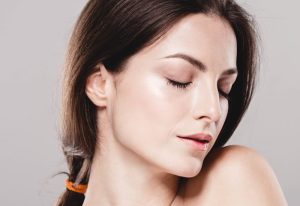Collagen, eh? Now you might think that the skincare industry has come up with something new to market. But collagen occurs naturally in the human body, including in the skin. It is a protein that is responsible for the stability of our skin.
The collagen fibres, which are produced by specialized skin cells known as fibroblasts, form the basis of the skin and provide the shape and structure of the skin from the inside out. Collagen forms a scaffold, so to speak, in the deeper layers of the skin and provides the all-important stability. The visible skin – our outer protective layer – lies above this. Here we explain exactly what this is all about.
The collagen framework of the skin
The natural framework of collagen fibers in the skin becomes less stable with increasing age. In the natural ageing process, collagen production decreases or slows down. The body’s own collagen breaks down faster than new collagen can be formed. By the age of 40, people have already lost 10-20% of their collagen. The skin also loses stability as a result.
An altered moisture content in the skin or a reduced ability to store moisture with increasing age also results in reduced blood circulation. As a result, the first lines and wrinkles become visible. Often first visible around the mouth and eyes. Another reason for this: when we laugh or frown (the so-called thinker’s forehead), we often repeat facial expressions, which further impairs stability.
As the skin’s stability decreases, the first signs of ageing appear in these areas. This makes it clear that collagen is an important component of our skin. But our bones also benefit from it. So do cartilage, joints, muscles, fascia, tendons and ligaments. And here, too, the natural reduction in the body’s own collagen production becomes noticeable with increasing age.
New collagen for the skin?
Even if it were desirable, pure collagen cannot be supplied to the skin from the outside via cosmetics. However, there are ways to stimulate the production of collagen, including measures such as:
- A balanced, vitamin-rich diet (for more information, see our expert tip on nutrition during the menopause) and sufficient protein intake.
- Stress, smoking or other external factors should be avoided, as these are known to accelerate skin ageing.
- Sufficient sleep and exercise help our body to regenerate and boost our metabolism.
- Comprehensive protection against UV radiation. Exposure to high levels of UV radiation from the sun destroys the natural structure of collagen and should therefore ideally be avoided. Strong UV radiation causes the collagen-forming fibroblasts to lose almost 50% of their activity, which results in faster skin ageing and wrinkling.
Applying collagen from the outside, on the other hand, makes little sense. Why? For one thing, the large collagen fibers cannot penetrate the skin, nor can they have a positive effect in the upper layers of the skin, as there is naturally no collagen here. Measures must therefore be taken to stimulate or supply production from within.
Natural collagen booster
But it is not completely hopeless. Protecting the skin from external influences and free radicals is crucial. So always take good care of your skin.
Good skin care can also support the skin’s natural functions from within and provide a healthy anti-ageing and collagen booster. Studies by Prof. Pulz (1) have shown that the polysaccharides contained in the microalgae active ingredient Spiralin® increase the formation of collagen by human skin cells by up to 36%, depending on the dose.
Experimental studies (1) have also shown that collagen-forming skin cells lose little or no activity under the influence of special sugar molecules, such as those in the active ingredient Spiralin®, after strong UV irradiation. While skin cells that are irradiated with the same UV dose without the microalgae protection lose almost 50% of their cell activity. Further details can also be found in published studies in our Research and Development section.
Fancy more? You can find more topics in our expert tips. And if you have any questions, please contact our experts at info(at)ocean-pharma.de.
Sources: (1) Prof. Dr. Dr. h.c. Otto Pulz, Potsdam: OM & Nutrition, European Journal of Orthomolecular and Related Medicine, No. 131, 09/2010
Image source: ocean pharma GmbH
Experten-Tipp entstand in Zusammenarbeit mit:
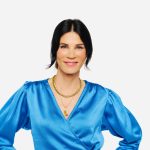
Susanne Dethlefs
Susanne Dethlefs is a specialist in the field of ageing prevention, sports nutrition and has excellent expertise in nutritional science, dermatology, cosmetic active ingredients and micronutrients.
